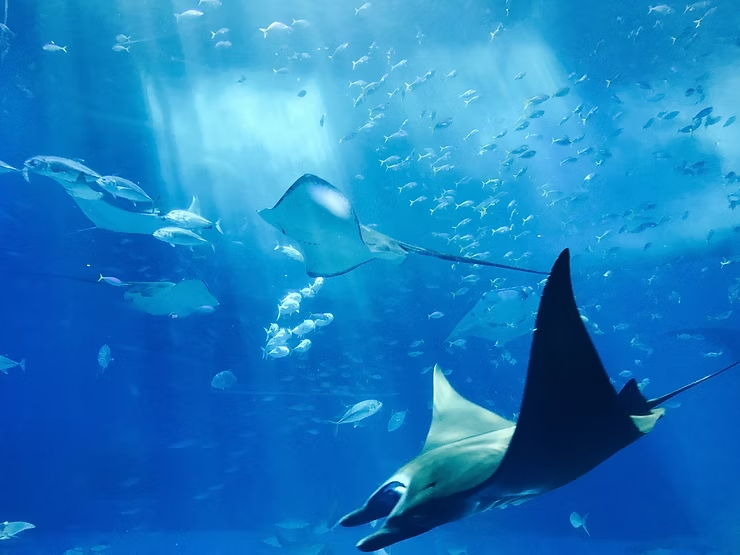Benefits of Marine Reserves
Marine reserves, also known as marine protected areas (MPAs), play a crucial role in safeguarding marine ecosystems and promoting sustainable ocean management. These protected areas offer numerous benefits that contribute to the health and resilience of marine environments.
Biodiversity Conservation
Marine reserves provide a safe haven for a wide range of marine species. By restricting or prohibiting extractive activities like fishing and mining, ecosystems can thrive, supporting diverse marine life. Protecting biodiversity maintains ecosystem balance, resilience, and genetic diversity, ensuring long-term survival of species.
Habitat Protection
Marine reserves safeguard critical habitats, such as coral reefs, seagrass beds, mangroves, and kelp forests. These areas provide shelter, breeding grounds, and feeding areas for marine species. Protecting these habitats prevents degradation, destruction, and fragmentation, supporting ocean health.
Spillover Effects
Protected areas act as sources of replenishment for adjacent areas. Populations within reserves can increase in abundance, size, and reproductive capacity. Over time, surplus individuals migrate beyond reserve boundaries, benefiting nearby fishing grounds and enhancing fisheries productivity.
Enhanced Fisheries
Well-designed marine reserves support sustainable fishing practices. Undisturbed fish populations within reserves grow and reproduce, increasing abundance and diversity outside boundaries. This natural management tool helps maintain fish stocks and supports long-term fisheries sustainability.
Ecological Resilience
Marine reserves increase ecosystem resilience against environmental stressors, including climate change. Protected areas serve as refuges where species can adapt and recover, enhancing the ability of ecosystems to withstand pollution, disease, and habitat loss.
Scientific Research and Monitoring
Marine reserves offer unique opportunities to study ecosystems in their natural state. They act as living laboratories for monitoring biodiversity, investigating ecological processes, and evaluating conservation strategies. Research from these areas informs better management practices.
Cultural and Educational Value
Marine reserves hold cultural and educational significance. They enable people to connect with nature, appreciate marine biodiversity, and learn about conservation. This fosters stewardship, empowering communities to engage in ocean protection and make informed resource-use decisions.
Tourism and Economic Benefits
Well-managed marine reserves attract eco-tourism, supporting local economies and sustainable livelihoods. Activities like snorkeling, diving, and wildlife watching generate revenue, create jobs, and benefit coastal communities. Showcasing pristine environments contributes to economic well-being.
Conclusion
Creating marine reserves is a vital strategy for marine conservation and sustainable management. By establishing and effectively managing these protected areas, we ensure biodiversity conservation, habitat protection, enhanced fisheries, ecological resilience, research opportunities, cultural and educational value, and economic benefits, securing the health and vitality of our oceans for future generations.

